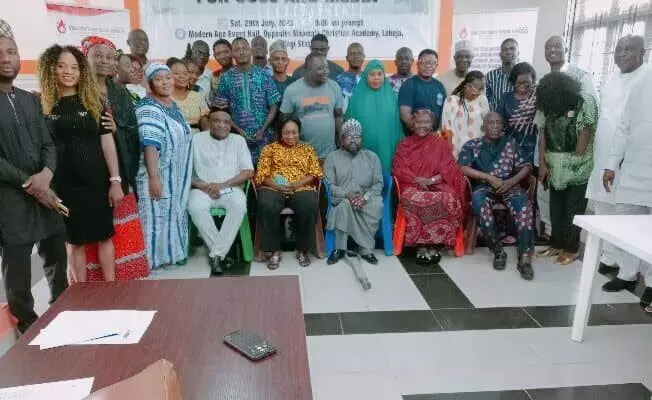- Home
- /
- Trending-News
- /
- Expert wants...
Expert wants journalists to embrace AI for social media effectiveness

A Digital Forensic Expert, Isa Ali, on Monday urged professional journalists to embrace Artificial Intelligence (AI), to be more effective on social media.
Musa gave the advice while speaking with journalists after one-day training for Civil Society Organisations (CSOs) and Journalists.
The training, which had the theme: “Effective Cause of Social Media”, was organised by the Stallion Times Media in Conjunction with the MacArthur Foundation in Lokoja.
The forensic expert advised journalists to try as much as possible to be professional, when using social media to distinguish themselves from novices.
Ali, who is a Research Scholar, stressed the need for professional journalists to learn artificial intelligence, especially as related to journalism.
He said that knowledge of AI would give them an edge on social media platforms.
According to him, the best way to be a professional journalist is to learn more about AI for social media, as it remains a major challenge.
“There is software you can use now to create a radio or television station as well as online newspapers.
“You will just set all the parameters, then go home and sleep, while the artificial intelligence through ‘operational intelligence algorithm’ will work on its own.
“It will broadcast news without anybody in the studio, and also write and publish news. This is going to be the key challenge for journalists,” Ali said.
The research scholar emphasised the need for journalists to up their game, and learn all the new technologies related to their profession.
He noted that fake news was spreading fast on social media because professional journalists had been left behind when it came to generating news stories for circulation.
Ali called on Kogi journalists to take over the social media platforms and contents, by creating online presence on all platforms.
He urged the journalists to project and report any activity that would promote transparency and accountability in governance, particularly in Kogi.
“When there is a story and it comes from a source that is more genuine, it generates more traffic because the person that posted first would have more followers.
“So, journalists in Kogi have to stand on their feet and be the first line of breaking news in the state, and even outside the state,” Ali said.
The forensic expert made presentations on various topics, such as, “The Basics of Social Media”, “Social Media and Effective Content Development”, Using Social Media to Build Relationships”, and “How to Use Social Media to Tell Stories.”
He urged professional journalists to utilise the training opportunity by publishing accurate, fair and balanced stories to the satisfaction of the populace.
The scholar charged professional journalists to exhibit high moral code by maintaining transparency, attribution, fact checking and retracting or correcting stories found to be incorrect.
Earlier, Mr Isiyaku Ahmed, the Project Coordinator, Stallion Times, said the nexus between CSOs and journalism was advocacy.
He urged journalists and CSOs to collaborate and leverage on social media potentials to achieve advocacy goals.
“As journalists, harnessing the power of social media is essential for researching a broader audience and staying connected with your readers.
“This training will equip participants with fundamental knowledge and skills to navigate the social media landscape,” Ahmed said.



